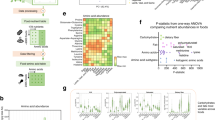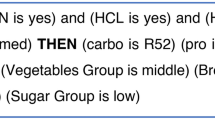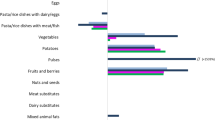Abstract
Objective: This paper aims at clarifying the meaning of ‘optimal diets’.
Design: Two different optimization approaches are considered. Both depart from people’s actual diets which in general do not meet all their nutrient requirements. In the first case (non fuzzy approach) the actual diets are modified such that all nutrient intake recommendations are met and the resulting changes in the persons’ food habits are as little as possible. In the second case (fuzzy approach) the actual diets are modified such that the persons’ food habits undergo little change and the nutrient intake recommendations are met as well as possible. Both approaches are evaluated using data on the actual diets of three randomly chosen participants of the Bavarian Food Intake Survey.
Results: With both approaches feasible solutions can be found. The optimal diets computed with the non fuzzy approach satisfy all the persons’ nutrient requirements, but make it necessary to change the persons’ food habits considerably. When compared to the subjects’ actual diets, the optimal diets computed with the fuzzy approach yield improvements for the intake of many nutrients, but in some cases deteriorations also occur (for example, concerning folate, calcium and iodine). So, the process and the results of the fuzzy approach are not ‘Pareto efficient’. But it has the advantage that the corresponding optimal diets deviate from the actual diets by no more than about 3–5 kitchen units per day.
Conclusions: The term ‘optimal’ does not have a general meaning. An ‘optimal diet’ does not necessarily meet all the nutrient requirements of a person. Optimality only depends on the respective conditions any optimization is based on.
This is a preview of subscription content, access via your institution
Access options
Subscribe to this journal
Receive 12 print issues and online access
$259.00 per year
only $21.58 per issue
Buy this article
- Purchase on Springer Link
- Instant access to full article PDF
Prices may be subject to local taxes which are calculated during checkout
Similar content being viewed by others
Author information
Authors and Affiliations
Rights and permissions
About this article
Cite this article
Gedrich, K., Hensel, A., Binder, I. et al. How optimal are computer-calculated optimal diets?. Eur J Clin Nutr 53, 309–318 (1999). https://doi.org/10.1038/sj.ejcn.1600727
Received:
Revised:
Accepted:
Published:
Issue Date:
DOI: https://doi.org/10.1038/sj.ejcn.1600727
Keywords
This article is cited by
-
Diet models with linear goal programming: impact of achievement functions
European Journal of Clinical Nutrition (2015)
-
A feasibility study of using a diet optimization approach in a web-based computer-tailoring intervention for adolescents
International Journal of Obesity (2008)
-
HELENA
Ernährung - Wissenschaft und Praxis (2007)
-
The need to review the Spanish recommended dietary energy and nutrient intakes
European Journal of Clinical Nutrition (2002)



